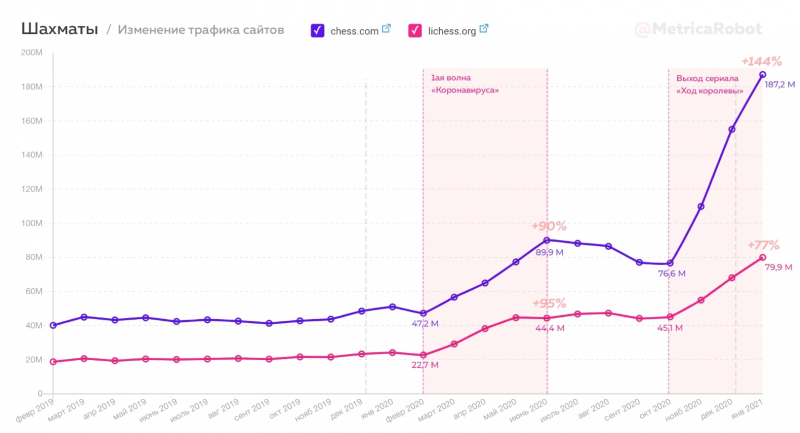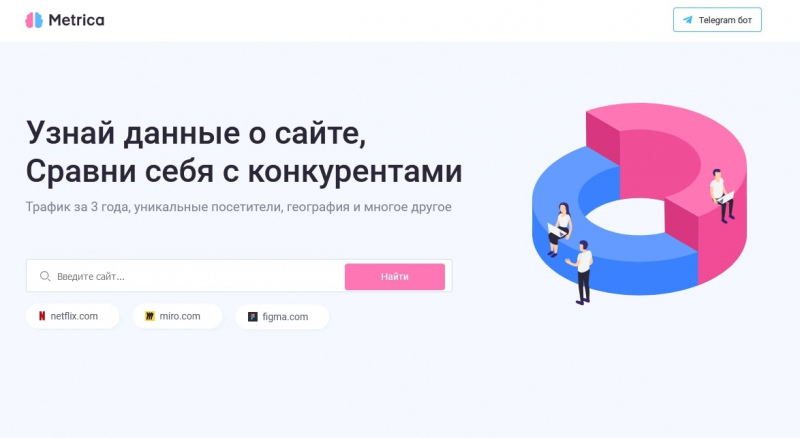Dmitriy, how did you come up with your business idea?
When we started the business, none of us had a clear picture of what we were going to do. So, we started analyzing the market. We needed data on what kind of services were there, what was new and trending and so on. But it was not an easy task because we either could not find any data at all or had to get a pricey subscription that we couldn’t afford. We were so outraged that decided to create our own product. And then we found out that we were not the only ones who faced this problem.
We started off by making competitive analyses for large companies. Let’s say there is a bank that wants to know which businesses are launching ads, which plan to hire new staff, and what development strategies they have. We managed to find ten clients but soon realized that it’s not going to work large-scale, which meant we wouldn’t be able to find investors.
So, we went for a different idea that would be scalable. At first, our project could only provide web traffic: users could type in any website and see its activity over the last three years. In an article on VC (in Russian), we explained what people could do with this information and described various cases – starting from the correlation between the bitcoin rate and the traffic on crypto exchanges and moving to more complex ones. We’ve attracted quite a lot of people, who supported us and motivated us to keep going.

The world’s traffic on two most popular chess websites almost doubled during the first wave of the pandemic and soared even higher after the release of The Queen's Gambit. Credit: vc.ru
Who can benefit from your idea?
We have a few clients from major corporations like Yandex or SberBank. They purchased our product to explore the market before the launch of their own businesses. We work with large and small businesses, too. We offer a rather simple product, so we have a fairly wide audience.
If you’re starting a business in a sought-after field, you will have a greater need to learn who your competitors are. At the same time, non-monopolists tend not to care about other companies. Nevertheless, it is hardly possible to launch a new business or corporate startup without conducting market analysis in today's fiercely competitive world.
What data does your service analyze?
Our service provides a variety of marketing data such as web traffic and acquisition channels used in ads by your competitors. In the future, we’re going to collect all data in the open domain, analyze it, and thus bring competitive analysis to a whole new level.
Imagine there is a company that deployed a new product or started posting job offers on their website or online recruiting platforms. Our task is to notify other companies about this, and theirs – to respond quickly. This results in a more competitive business environment: the more competitive the environment, the higher the quality of the product, and the more beneficial it is for the customers.
In total, we have around four open sources that we regularly parse. We developed algorithms for data processing and generation, and now, we’re adopting machine learning.

The Metrica service homepage. Credit: metrica.guru
You’ve participated in ITMO Accelerator. What can you say about this experience?
We’ve been collaborating with ITMO ever since we started the company. We learned about the Accelerator from one of our co-founders who studied at the university. The most important part of our experience was that we got to work side by side with mentors who supported us and moderated our path.
How do you plan to further develop your project?
A month and a half ago, we started testing monetization and yielded significant results: $2,000 revenue in 1.5 months. Now, we have three or four business fields we would like to explore.
We also plan to increase revenue and prepare the product for entering the European market in October. As for now, we’re in the process of registering our business and preparing the English version of our product. Thus, we will be able to attract more clients and revenue.
Where are you going to launch?
We will start with nearby countries because they are typically less competitive. We are considering piloting in Poland. If everything works out, we will create versions in other languages and launch them, too. So far, we’ve been doing well but we need to know whether our service will be in demand on the European market. We have around 2,000 users per month, 100-300 people per day.
How are you going to monetize your platform?
We took a chance and introduced a 14-day free trial for our platform. We hope that people who find our service useful will then get a subscription. It might not be the most efficient marketing strategy but we’re all for honesty. We don’t want to take money for what people may not need.

Dmitriy Komarentsev. Photo courtesy of the subject
Did you have successful cases?
We had one customer who worked at a construction materials company. The company had been having a hard time for eight months. Its traffic got lower all the time. They were worried and did everything in their power to figure out the cause. Then, this person came to us, analyzed the competitors, built the trends, and saw that it was a common problem. As a result, they realized that the decline had nothing to do with their actions and were able to make a certain decision.
So, your service makes it possible to track global market trends, is that right?
Yes, our service helps users to make business decisions, for instance, how to allocate their budget or what market field to choose.
Do you have many competitors?
There are plenty of analytics services. Frequently, major companies employ separate services for different purposes: contextual advertising, offline analytics, and so on. We specialize in analyzing market trends. There are two more companies in this field but unlike us, they aim for major businesses





